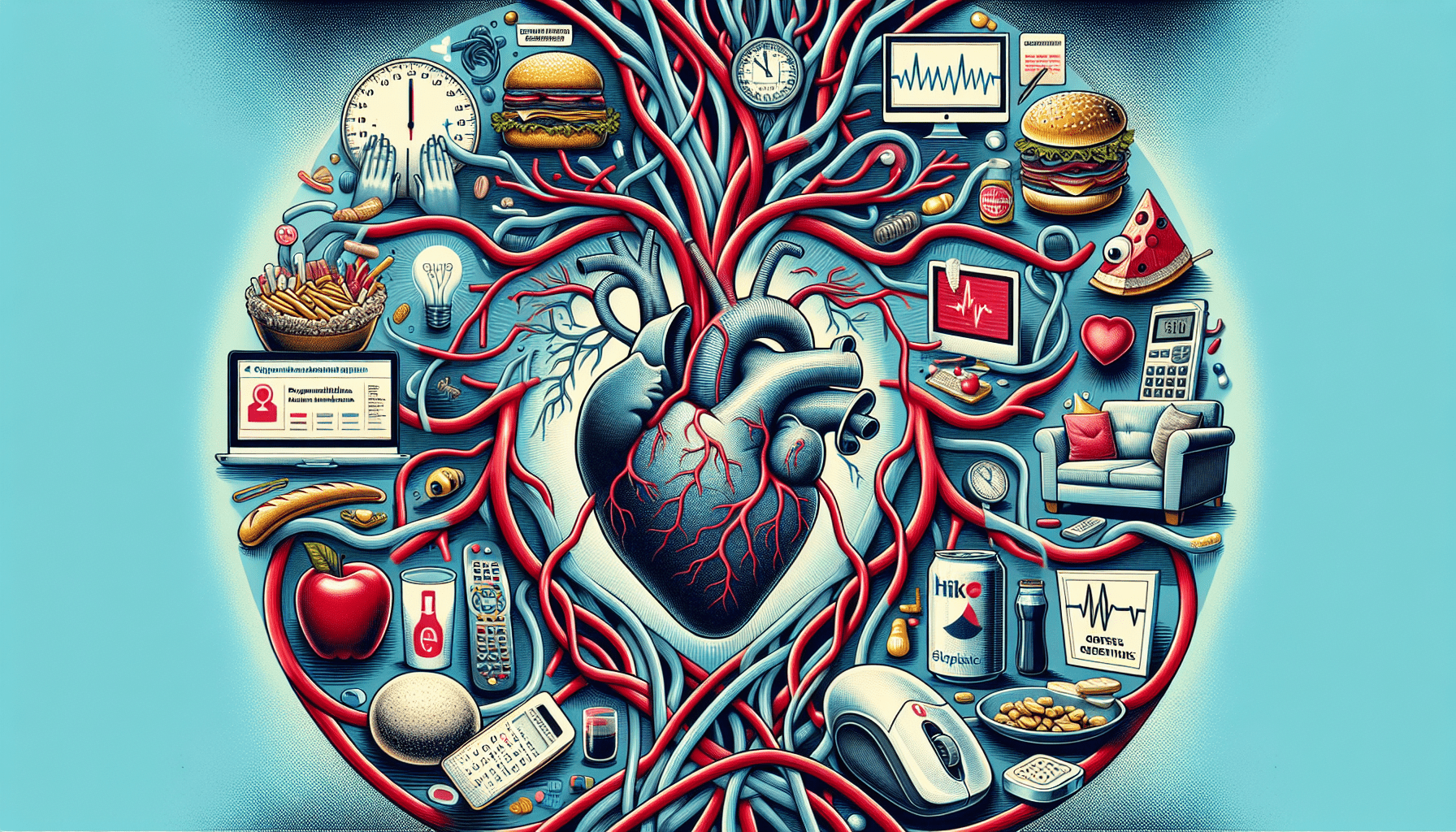Discover how factors beyond salt, like hydration, vitamins, and insulin, influence high blood pressure. Learn natural remedies and lifestyle tips for healthier living.
High blood pressure, often touted as a consequence of excessive salt intake, involves much more intricate factors that are often overlooked. Dehydration, vitamin D deficiency, and insulin issues significantly contribute to hypertension, and acknowledging these can set you on a path toward better health. You’ll explore how natural salts like Celtic sea salt offer a healthier alternative to processed table salt and how simple lifestyle adjustments can make a world of difference.
This article sheds light on the underlying causes of high blood pressure and offers natural remedies to manage it effectively. By incorporating proper hydration, balanced nutrition, and regular exercise, you can support healthy blood pressure levels. You’ll also learn why healthy fats are essential, and how natural remedies like hawthorn berry and cayenne pepper can bolster your heart. With Dr. Barbara O’Neill’s insights, you’ll gain a holistic understanding of hypertension and practical steps to manage it naturally.
Understanding High Blood Pressure
Taking charge of your health includes understanding one of the most common yet often misunderstood conditions: high blood pressure.
Definition of Hypertension
High blood pressure, also known as hypertension, is when the force of your blood against the walls of your arteries is consistently too high. Your heart has to work harder than it should to pump blood through the body, which can lead to serious health issues such as heart disease, stroke, and kidney problems if left unchecked.
Prevalence and Impact on Health
Hypertension is surprisingly common, affecting approximately 45% of adults in the United States. However, many people are unaware they have it because it often has no visible symptoms until serious health issues arise. This “silent killer” requires regular monitoring and proactive management to ensure it does not lead to critical health events.
Beyond Salt: Major Contributing Factors
While it’s widely known that excessive salt intake can contribute to high blood pressure, there are several other critical factors that you might not be aware of.
Role of Dehydration
Dehydration can significantly impact blood pressure levels. When your body lacks adequate hydration, it tends to constrict capillary networks to conserve water, which can lead to increased blood pressure. Hence, drinking at least eight glasses of water a day is essential to maintain proper hydration and support cardiovascular health.
Impact of Vitamin D Deficiency
Vitamin D isn’t just vital for bone health; it plays a crucial role in cardiovascular health as well. A deficiency in vitamin D can lead to increased blood pressure due to its role in calcium absorption and heart function. Getting enough sunlight or taking appropriate supplements can help mitigate this risk.
Insulin and Metabolic Issues
Insulin resistance, often caused by poor dietary habits and high carbohydrate intake, can lead to metabolic syndrome—a cluster of conditions that increase your risk of heart disease, stroke, and high blood pressure. Managing insulin levels through a balanced diet can positively influence blood pressure.

This image is property of i.ytimg.com.
Salt: Table vs Natural
Not all salts are created equal, and it’s important to understand the differences for better health management.
Comparison of Processed Table Salt and Natural Salts
Processed table salt undergoes significant industrial processing which removes most of its natural minerals, leaving mainly sodium chloride. This can exacerbate high blood pressure and other health issues. In contrast, natural salts like Celtic sea salt retain essential minerals like magnesium, potassium, and calcium, which offer numerous health benefits.
Health Benefits of Celtic Sea Salt
Celtic sea salt is less processed and contains a wide range of essential minerals in their natural state. These minerals can help balance bodily functions, including the regulation of blood pressure. Unlike table salt, which is stripped of beneficial minerals, Celtic sea salt supports mineral balance in the body.
Essential Minerals and Their Role
Ensuring you get enough essential minerals can be a significant step in controlling high blood pressure.
Importance of Magnesium
Magnesium is vital for many bodily functions, including the production of nitric oxide, which relaxes blood vessels and lowers blood pressure. Including magnesium-rich foods like dark leafy greens, nuts, and seeds in your diet can make a big difference.
Role of Potassium
Potassium helps the muscles, including the cardiac muscles of the heart, to function correctly. It also aids in relaxing blood vessels, thus lowering blood pressure. Foods rich in potassium, such as bananas, avocados, and sweet potatoes, should be regular fixtures in your diet.
Sources of Essential Minerals
A balanced diet with a variety of foods is the best way to ensure you get the necessary minerals. Incorporate dark green leafy vegetables, fruits, nuts, and seeds to provide a rich source of essential minerals for heart health and overall well-being.

Nutrition and High Blood Pressure
What you eat plays a crucial role in managing high blood pressure.
Adverse Effects of High-Carbohydrate Diets
High-carbohydrate diets can lead to insulin resistance and contribute to high blood pressure. Reducing carbohydrate intake and focusing instead on a balanced diet with plenty of protein and healthy fats can help maintain stable blood pressure levels.
Balancing Nutrients
A balanced diet rich in essential nutrients supports overall health and helps in regulating blood pressure. Focus on incorporating a mix of proteins, healthy fats, and fiber-rich foods while minimizing processed foods and high-carb snacks.
Healthy Fats vs Low-Fat Diets
Contrary to popular belief, low-fat diets may not be the best choice for heart health. Healthy fats found in avocados, olive oil, and nuts can support cardiovascular health and help in controlling blood pressure. It’s critical to distinguish between healthy fats and harmful trans fats found in many processed foods.
Natural Remedies for Blood Pressure Management
Natural remedies can be a complementary approach to manage high blood pressure.
Benefits of Hawthorn Berry
Hawthorn berry has been used traditionally to strengthen the heart and improve cardiovascular function. It helps regulate blood pressure by improving heart muscle function and increasing blood circulation.
Cayenne Pepper and Cardiovascular Health
Cayenne pepper is known to support cardiovascular health by improving blood flow and dilating blood vessels. It can help in reducing blood pressure naturally when included as part of a balanced diet.

Lifestyle Changes for Blood Pressure Control
Simple lifestyle adjustments can go a long way in managing high blood pressure.
Importance of Regular Exercise
Regular exercise improves heart health, reduces stress, and promotes better blood circulation, all of which can help lower blood pressure. Aim for at least 30 minutes of moderate exercise most days of the week.
Proper Hydration Strategies
Maintaining proper hydration is crucial for cardiovascular health. Make it a habit to drink water throughout the day to keep your body well-hydrated and support normal blood pressure levels.
Nutrient-Rich Diet Plans
Adopting a nutrient-rich diet that includes a variety of foods ensures you get all the essential vitamins and minerals needed for heart health. Focus on whole foods, minimize processed foods, and ensure a balanced intake of proteins, fats, and carbohydrates.
Importance of Sunlight Exposure
Sunlight is a natural source of Vitamin D, which is vital for heart health. Regular, safe exposure to sunlight can help maintain adequate Vitamin D levels and support cardiovascular function while helping to manage blood pressure.
Evaluating Health Information Critically
In the age of information overload, it’s vital to critically evaluate health information.
Need for Informed Decisions
Always make informed decisions regarding your health. Take the time to understand the root causes of health issues and evaluate potential solutions carefully before making any changes.
Dependable Sources
Dependable sources include peer-reviewed medical journals, well-respected healthcare professionals, and established health organizations. Be cautious of information from unverified or biased sources that might have a commercial interest.
Consulting Healthcare Professionals
It’s crucial to consult healthcare professionals for accurate diagnoses and tailored health regimens.
Why Professional Advice is Crucial
Healthcare professionals have the expertise and tools to provide a correct diagnosis and suggest the most appropriate treatment options. They can help tailor a health regimen that considers your unique health status and needs.
Steps for Starting a New Health Regimen
Before starting any new health regimen, especially those involving significant dietary or lifestyle changes, consult with a healthcare professional. They can perform necessary evaluations and guide you through a safe and effective plan to manage your high blood pressure.
Conclusion
Summarizing Key Points
Understanding high blood pressure involves looking beyond just salt intake to factors like dehydration, vitamin D deficiency, and insulin resistance. Natural salts, essential minerals, proper hydration, balanced nutrition, and regular exercise are crucial in managing blood pressure. Natural remedies like hawthorn berry and cayenne pepper can further support cardiovascular health.
Encouragement for Proactive Health Management
Taking a proactive approach to your health can help prevent and manage high blood pressure effectively. By making informed choices and consulting healthcare professionals, you can take control of your health and pave the way for a healthier future.
Disclosure: As an Amazon Associate, I earn from qualifying purchases.

